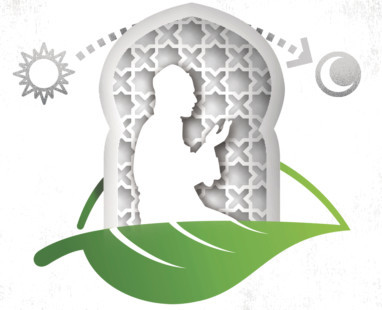
Our modern life has created behavioural patterns that are beyond what they should be for a Muslim, This “lifestyle” is a reflection of the image and values of the individual, and the way he sees himself and the surrounding environment as well as how he deals with everything around him.
So, the values and moralities of Islam should play a key role in guiding the behaviour of a Muslim, but the variables of contemporary life have unfortunately led to behaviours that are harmful to people, environment and society.
For instance, we have smoking and lack of proper nutrition as a result of reliance on fast food. There is also depleting and wasting of natural resources such as energy and water in addition to pollution of the environment and natural resources, as well as the lack of attention to hygiene, especially in public places and lack of respect for traffic rules and order in general.
All this has led to many psychiatric, social, physical and mental diseases and a massive deterioration in the quality of life — which our ancestors enjoyed. This, despite the fact that the technology we have today is far advanced than that what was available to them!
Therefore, the month of Ramadan is a golden opportunity to consider making a shift towards a green lifestyle that is non-polluting, non-wasteful, and one that does not lead to exhaustion of natural resources and one that reduces carbon emissions. The green lifestyle simply means improving the quality of life and achieving sustainable development.
Detoxification
As it has been said “the fasting is a zakat (purification) of the hull,” and this is proven by modern science. Fasting has many benefits. It enhances the detoxification of the human body, and works to increase fat burning, reduce blood sugar levels. So, let fasting purify the environment as well by not polluting or depleting resources in Ramadan.
From the Islamic point of view, we must “avoid all that can break the fast from dawn to sunset”, and here fasting means not just giving up food and drink, but also refraining from sins such as backbiting ... and all that involves disobedience to Allah, and harms other humans and/or spoils the environment and its resources. So it is natural that fasting also means refraining from actions that lead to the pollution of the environment and depletion of resources and wasteful consumption and usage. The fasting person must protect the environment and its resources, especially in the month of Ramadan; fasting is therefore an opportunity to purify body, soul and ecosystems.
In fact, put simply, the goal of man in this life includes two basic things are 1) Worship Allah 2) and achieve sustainable development. Says Allah Almighty: “And I did not create the jinn and mankind except to worship Me,” (Al Tharyat: 51). Any of the above two goals cannot be achieved if there is corruption and pollution of ecosystems and natural resources. It means that the earth and its resources are no longer able to supply man what it takes to keep his life and architecture because the natural resources have been soiled and cannot be used for what they were originally intended for.
The shift to a green lifestyle for a Muslim when it comes to clothing, food habits and use of natural resources such as energy, water, etc. ... during the month of Ramadan is not only a social responsibility but is also a religious duty. Says Allah Almighty “And He it is who causes gardens to grow, [both] trellised and untrellised, and palm trees and crops of different [kinds of] food and olives and pomegranates, similar and dissimilar. Eat of [each of] its fruit when it yields and give its due [zakah] on the day of its harvest. And be not excessive. Indeed, He does not like those who commit excess: (Al Anaam:6).
It is no wonder that the United Nations adopted in 2012 after the Rio Summit (Rio +20) a ten-year plan for sustainable consumption and production in different sectors — energy, water, waste management, education and tourism. Humanity is currently living in the era of multiple crises whether financial, climate, energy or water related. Let us seize this opportunity provided by Ramadan and offer a model for a green and responsible behaviour that addresses these various crises. Let us hope that such a pattern continues throughout the year.
Dr Mohammad Abdel Raouf is an independent environmental researcher.









